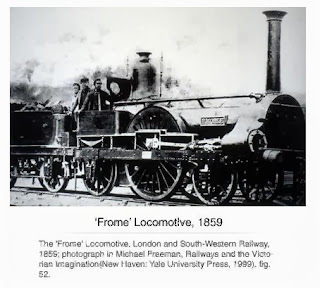During
the industrial revolution, industrialists in the United States (US) had some success,
but industrialists were more successful in Great Britain. There were plentiful laborers in Great Britain, many whom used to
be farmers and who could no longer make a living farming, as opposed to the US
where there was not a lot of labor available.
Many of the laborers in Great Britain were children who worked long hours. Many children, especially girls, were “Shut up from morning till night, except
when they are sent home for their meals”. Industrialists had children working for long
periods of time for low wages to make a maximum amount of money. However, in the United States, eventually “a
tenhour law was passed” meaning children could not work for longer than
ten hours in a day and industrialists got less labor from children. Also, industrialists in Great Britain had plentiful
amounts of iron ore and coal. They received
raw materials from their colonies, and all of these resources allowed them to
manufacture lots of different goods. In
the US, the only plentiful resource was wood and land. Using their iron, coal, and other various
resources, Great Britain developed extremely successful transportation,
including canals, longer-lasting roads, and steam-powered locomotives and railroads. The US had railroads and canals as well, but
they did not have very good roads, so Great Britain had better transportation
than the US. These different types of
transportation helped industrialists in Great Britain become and stay
successful, because they were able to move and sell their goods to different areas. In Great Britain, besides the inventions
in transportation there were also lots of other inventions that helped industrialists
succeed. There were inventions like the
seed-drill, water-powered loom, and flying shuttle. These all helped
speed up the manufacturing of products and thus increase the quantity that they
were able to be manufacture. Because
of their additional resources, including labor, industrialists in Great Britain
were more successful than industrialists in the United States.

In the
United States, however, workers had a more positive experience than they did in
Great Britain. Girls working in Great
Britain were abused at times. It was
said that “In the eyes of her overseer she [a girl working in the factories]
was but a brute, a slave, to be beaten, pinched and pushed about”. In the United States, girls were not
physically abused and “such high wages had been offered to women that they
might be induced to become millgirls”. Though young girls never made a lot of money,
they were able to make more money in the United States than in Great Britain. Also, in Great Britain, “the whole
maintenance of the family devolves on the father”. This was due to mothers and their children no
longer being able to make money at home since “the establishment of the Spinning Machines in many Counties
where I was last Summer, no Hand Work could be had”. The family was
dependent of the father to survive and the father had the responsibility to
support the family entirely on his own unless other members of the family went
to work in the factories. And, in Great
Britain, when girls did go to work in factories, they were not able to learn
how to take care of a family and perform the domestic duties expected of a
woman when she married. It was said
that, “these girls are ignorant of, and unhandy at every domestic employment,
whereas if at her wheel in her mother’s cottage, the girl assists in every
occupation of the family”. The girls
would be ignorant of how to perform these tasks because they would be “Shut up
from morning till night” in the factories.
In the United States though, this was not as much of a concern because “Those of the millgirls who had homes
generally worked from eight to ten months in the year; the rest of the time was
spent with parents or friends” which would allow girls to be social and
learn some of these important duties from their mothers. While workers in the United States did not
have a perfect experience, they had a more positive experience than in Great
Britain.
No comments:
Post a Comment